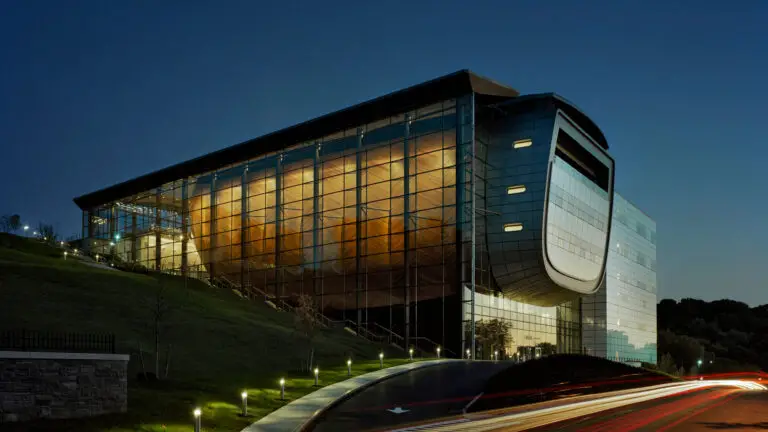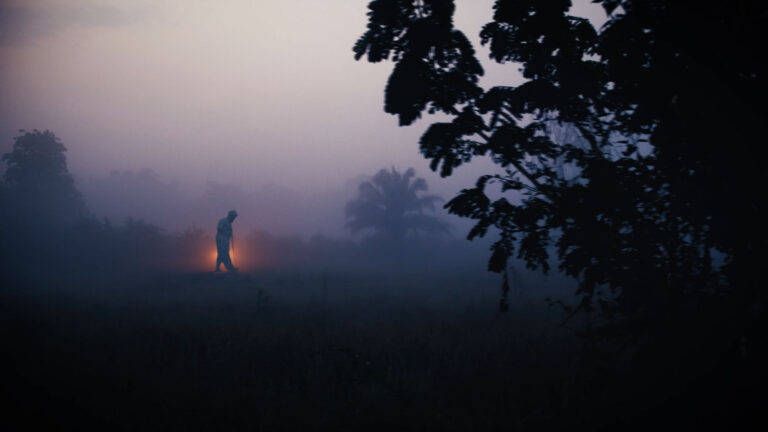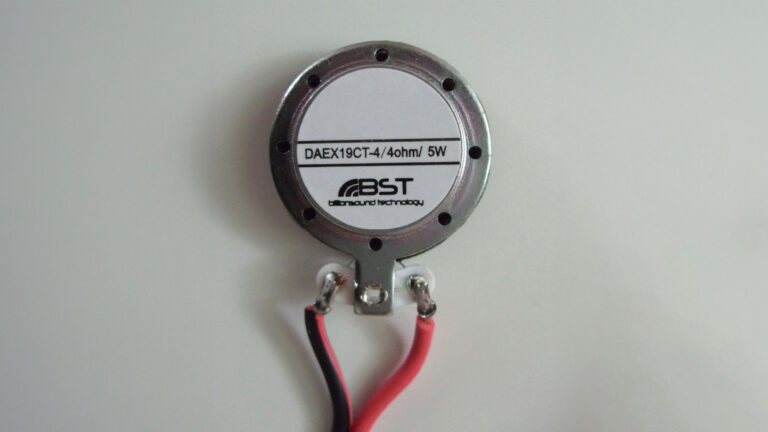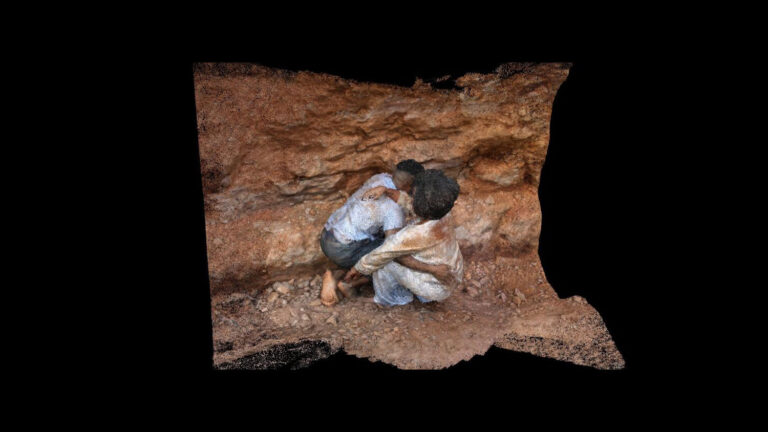EMPAC / Curtis R. Priem Experimental Media and Performing Arts Center at Rensselaer Polytechnic Institute has announced its Spring 2024 programming.

From January through May, EMPAC 2024 presents a diverse lineup of interdisciplinary programming, including concerts, film screenings, dance performances, artists’ talks, and a two-day symposium. Furthering their mission of gathering artists, thinkers, and audiences together to explore the boundaries of art, science, politics, and technology, EMPAC’s programming will keep people intrigued and entertained.
EMPAC / the Curtis R. Priem Experimental Media and Performing Arts Center at Rensselaer is located on the corner of 8th Street and College Avenue in Troy. It is a 220,000-square-foot facility designed expressly for creating and presenting experimental media and performing arts. Since the building’s opening in 2008, the curatorial program has supported more than 600 performances and new works through residencies, commissions, partnerships, premieres, installations, publications, and more.
EMPAC Spring 2024 Programming
Barobar Jagtana (January 11) is a screening of Suneil Sanzgiri’s vivid trilogy of short films. He is a recipient of the UOVO Prize and his solo exhibition is currently on display at the Brooklyn Museum through May 2024. The Konkani title of the series roughly translates to “continuously surviving.” The evening screens three of his films: At Home But Not At Home (2019), Letter From Your Far-off Country (2020), and Golden Jubilee (2021), followed by a conversation with curator Vic Brooks.
Barobar Jagtana connects the childhood experience of Sanzgiri’s father at the tail-end of Portuguese occupation in Goa, India with the broader history of South Asian anti-colonial struggle. The films link past events to contemporary struggles, forging connections between solidarity movements across time with a distinct visual language.

Poetry & Fairy Tale (January 19) is a piano recital by award-winning pianist and composer Conrad Tao, hailed “the kind of musician who is shaping the future of classical music” by New York Magazine. Tao has performed as a soloist with the Los Angeles Philharmonic, Chicago Symphony, Cleveland Orchestra, New York Philharmonic, and Boston Symphony, and his original compositions have been performed by orchestras throughout the world.
This new program combines Western repertoire and provocative contemporary works. Inspired by themes of poetry and fairy tales, Tao’s one-night-only recital tests a line-up that includes music by Johannes Brahms, Tod Moellenberg, David Fulmer, Rebecca Saunders, and Maurice Ravel.
In February, EMPAC presents Reembodied Sound 2024 (February 2-3), a two-day festival and symposium on transducer-based music and sonic art, co-presented with the Rensselaer Department of Arts. A famed member of the New York School, David Tudor pioneered transducer-based artworks in the 1960s and 70s, inspired by the work of his frequent collaborator John Cage. Tudor created Rainforest IV in 1973, which used “surface speakers” (electric transducers) to excite the sonic possibilities of such objects.
The symposium has three tracks: a remounting of Rainforest IV by students of the Rensselaer Arts Department with John Driscoll and Phil Edelstein in commemoration of its 50th anniversary in 2023, a series of demonstrations and paper presentations, selected from an open call that received 189 project submissions from around the world, with a keynote address by noted sound art scholar and composer Cathy van Eck, and a concert of transducer-based works to be announced. All activities are free and open to the public.

Grounds of Coherence #1 / but this is the language we met in (February 9) is a multifaceted evening with filmmaker Shen Xin and performer Ali Van that includes an American premiere film screening, a live performance, and the debut of their collaborative project, AX Archive. Van opens the program in a performance with Shen that aims to mirror the narrative style of Shen’s most recent film. His new short film is from the ongoing series Grounds of Coherence and explores how language can be used to create spaces of belonging. In it, myths are recited in English between two lovers, a story is narrated in Arabic, and protesters chant in regional Mandarin. The duo’s EMPAC appearance concludes with improvisation, incorporating spatialized audio.
Dancer and choreographer Ligia Lewis is at EMPAC 2024 with the first East Coast presentation of her stage production, A Plot / A Scandal (February 16 & 17). After debuting in Germany in 2022 it was recently awarded the prestigious annual Der Faust prize, citing Lewis as the “master of ceremonies.” This piece explores fantasy, pleasure, and narrative experimentation. Lewis’ prior performances in the U.S. have been called “the most vital new work…beautiful, blistering” by the New York Times.
Akoma (March 15) previews the new multimedia production from acclaimed electronic musician and Pulitzer Prize for Music finalist Jlin, and visual artist Florence To, in preparation for the upcoming tour of Jlin’s latest album of the same name. Jlin’s music is influenced by “footwork,” a genre of post-house music originating in Chicago, featuring athletic and hyperactive rhythmic drive. For this concert, Florence To designed an interactive landscape of sound and light mapped onto various surfaces and lighting rigs that respond to Jlin’s music.

EMPAC-commissioned concert Susceptible Chambers (April 5) by composer-performers Antonia Barnett-McIntosh and Jessie Marino is continuing the season’s theme of sonic exploration through everyday objects. It begins with the reconstruction of a simple microphone and expands into technologies from different eras, like pulley systems, pianolas, needlepoint, and sodium vapor lamps. Barnett-McIntosh and Marino create a new performance that draws the audience into an unusual and playful sonic and visual world, experimenting with and challenging accepted practices of today’s electronic music and contemporary music more broadly. They also present an open studio and talk (January 17) at the start of the season.
Space Carcasses (April 23) by performing artist and choreographer Onye Ozuzu is a work-in-progress dance performance that explores how architectures haunt the body and impart their histories to us as physical effects. The work includes a virtual, composite space layered with audiovisual data from three different architectural sites. Space Carcasses is a National Performance Network (NPN) Creation & Development Fund Project with an international society of co-commissioners that includes dance centers across the states. At EMPAC, this free presentation offers a window into Ozuzu’s research, development, and production of Space Carcasses, including how the artist and EMPAC production teams are engineering a “sound dancer” using EMPAC’s spatialization sound technology.

Iconic Afro-gothic composer and vocalist M. Lamar closes out EMPAC’s Spring 2024 season with Machines and other intergalactic technologies of the spirit (May 3), the third collaboration with experimental music duo The Living Earth Show, as part of their ongoing residency at EMPAC. Lamar gains the production backing to put on his largest-scaled work to date: an evening of psychedelic rock, noise music, opera, and doom metal, drawing conceptually on the “Astro-Black mythology” of the visionary jazz artist Sun Ra.
Lamar performs in a 15-foot tall rocketship-boat-coffin structure, with images of outer space as popularized by mass media over the years, ancient Egypt, and pre-Atlantic Christianity. The performance is a follow-up to M Lamar and The Living Earth Show’s 2019 Met Cloisters collaboration, Lordship and Bondage: The Birth of The Negro Superman.
The EMPAC Spring 2024 season also presents a curated set of lectures, with appearances from composer and artist Marina Rosenfeld, giving a work-in-progress talk that takes her decades-long work with dubplates into new visual and sonic territory (January 24); scholar André Lepecki, on choreographic works that challenge the ideas of time as a technology for policing movement (January 25); Marina Vishmidt, on art, labor, and value, reflecting on projects from EMPAC’s archive (February 22); Ezekiel Dixon-Román, on computation influenced by black radical anti-colonial thought, cybernetics, and critical philosophies of technology (March 21); and Peli Grietzer, on art’s structures concerning architectures of artificial intelligence (April 11).
For more information and to purchase tickets, visit here.


Comments are closed.